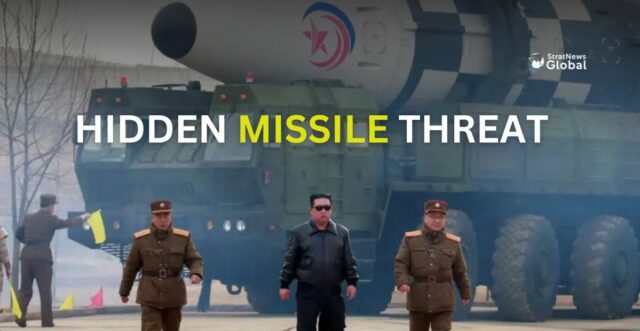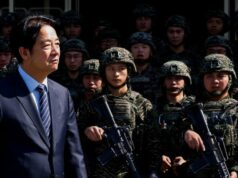North Korea has built a secret military base near its northern border with China, likely housing intercontinental ballistic missiles (ICBMs) capable of striking the U.S. mainland, according to a new report by the Center for Strategic and International Studies (CSIS).
Located in Sinpung-dong, just 27 km from the Chinese frontier, the “undeclared” facility is believed to contain six to nine nuclear-capable ICBMs and their launchers. The CSIS study, released Wednesday, warns that these weapons “pose a potential nuclear threat to East Asia and the continental United States.”
The site is part of a wider network of up to 20 undisclosed ballistic missile bases across North Korea that have never been included in denuclearization talks. “The base, along with others, represent the primary components of what is presumed to be North Korea’s evolving ballistic missile strategy,” the report said, highlighting Pyongyang’s efforts to build a credible nuclear deterrent.
The revelation has heightened concerns among regional powers and global security analysts that Pyongyang is expanding its arsenal covertly. According to CSIS, these bases are designed for strategic deception, allowing mobile launchers to leave the base in a crisis and fire from remote locations, making detection and preemption far more difficult.
This is not the first time undeclared missile sites have been exposed. In 2018, satellite imagery revealed a similar base in Sakkanmol, even as then-U.S. President Donald Trump and North Korean leader Kim Jong-un pursued high-level diplomatic engagement.
Since the collapse of the 2019 Hanoi summit—derailed by disputes over sequencing denuclearization and sanctions relief—North Korea has steadily ramped up weapons development. Earlier this year, Kim called for the “rapid expansion” of the country’s nuclear program, framing it as essential to counter what he described as growing threats from the U.S. and its allies.
With tensions already high on the Korean Peninsula, and trilateral security cooperation deepening between the U.S., South Korea, and Japan, the discovery of this new missile base is likely to complicate future diplomacy and reinforce perceptions that Pyongyang is preparing for long-term nuclear confrontation rather than reconciliation.





